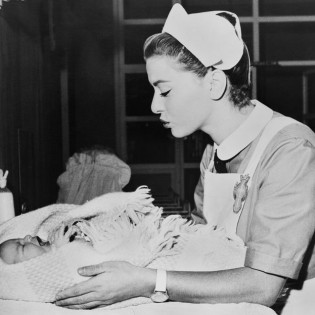Less fewers, please

The Edit Part IV
Continuing our series on good writing, we discuss rules on English are not rules at all.
Fewer or less? It is commonly thought that if you use nouns of quantity, English grammar requires you to use “fewer” not “less”. Waitrose changed the signs over its quick checkouts to “Ten items or FEWER”. And in reply to the question “why do you shop at Waitrose?” one smug shopper tweeted: “@waitrose ... because you say, ‘Ten items or fewer’ not ‘Ten items or less’, which is important”.
I was taught to remember the “rule” by a witty editor who said: “If you ate fewer lunches, there would be less of you.”
But is it really a rule at all? It is easy to drive a hole through the argument. For a start, if there were a real distinction, we might assume it would work in the opposite direction as well. But if I ate more lunches, there would be even more of me, and there is no alternative to saying that, or “ten items or more”.
There are also many exceptions: nobody would write that “the nearest town is fewer than 10 miles away” or that a person weighed “three stones fewer than he did in July”.
According to The Times columnist Oliver Kamm, the rule was invented by an ill- informed 18th-century pedant called Robert Baker in his book Reflections on the English Language (1770). Kamm adds that “less has been used with countables for about a thousand years – pretty much the entire history of written English”.
He is right of course. Sorry, Waitrose shoppers, it isn’t important.
Does that mean, however, that you should ignore the distinction? Not necessarily – in all communication, writers should have regard for their readers. And if people feel the distinction matters, they may be misguided, but why offend them? It is the same with split infinitives: not wrong, but still annoying to many.
So if you want carry on making the distinction, do so because it is good manners. And if you ignore it, don’t let anyone tell you you’re wrong.
If only
Someone else upset by the travails of modern life was the cook and environmental campaigner Hugh Fearnley-Whittingstall. Hugh wanted to use his own teacup, instead of a disposable plastic one, on a South Western Rail train, but was not allowed to. The Telegraph reported: “South Western Rail is one of the only train companies in the UK which does not let passengers use their own cups.”
It was the expression “one of the only” that caught our eye. “Only” is a tricky customer for such a short, common word, and we could fill an entire post with the debate on where to position it correctly in a sentence. But here, can you be one of the only?
The relevant definition from Collins says: “If you talk about the only person or thing involved in a particular situation, you mean there are no others involved in it”, and you can’t really be “one of something” if no others are involved.
The reporter might have written “one of the few”, or “only a few” but as there is only a small number of rail companies anyway, that wouldn’t have narrowed it down much. And finding out if South Western Rail was the only one with this policy would have required actual research.
So “one of the only” is a logical contradiction, and the sub-editors might have been harder on it, but it is by no means the only English phrase involving “only” that can confuse non-native speakers. What to make of the emphatic phrase “only too”, as in “I am only too pleased to explain this”?
“Only” implies a limitation and “too” a surfeit, so again the phrase is a logical contradiction. Why does English work like this? It’s just the way it is.
When white's not right
Few enjoyed a white Christmas in Britain this year. However, snow will almost certainly fall sometime this winter. When it does, can we implore weather forecasters, especially on the BBC, and others to resist the temptation to call it by that ridiculous “elegant variation” “the white stuff”? Round our way it’s usually the grey stuff before very long. “Snow” will do fine.
I’ve even heard BBC forecasters and others starting to call rain “the wet stuff”. The Inuit may have 50 words for snow, but we in England have more than enough variations for our prevalent form of precipitation – from the plain descriptive (rain, hail, sleet, drizzle, shower, storm, mist) through the poetic (mizzle, a soft morning, scotch mist, sea fret) to the colloquial (stair-rodding, cats and dogs, bucketing) – without resorting to this silliness. Just stop it.





